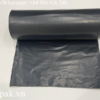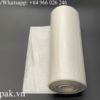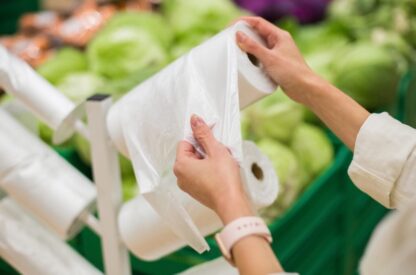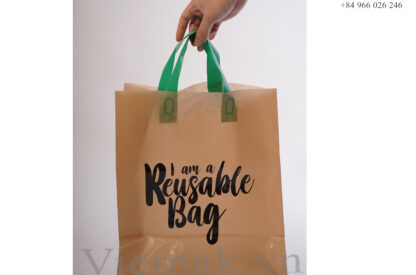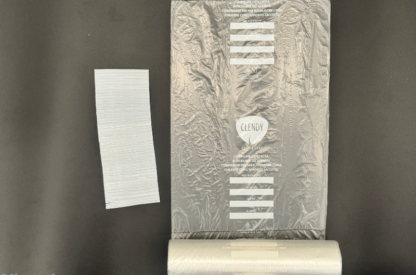Purpose and Benefits of Plastic Bags for Vegetable Storage
Plastic bags have become a ubiquitous tool in modern kitchens and supermarkets for storing vegetables. They are commonly used due to their convenience, affordability, and versatility. These bags come in various sizes and types, designed to help keep vegetables fresh and manageable.
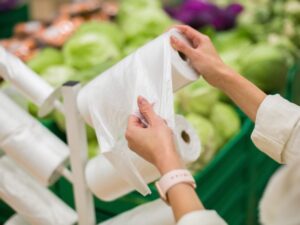
Plastic Bags for Vegetable Storage
Types of Plastic Bags for Vegetable Storage
Contents
1. Standard Plastic Bags
- Characteristics: Standard plastic bags are typically thin, lightweight, and made from low-density polyethylene (LDPE). They are often used for groceries and are generally designed for single-use purposes.
- Common Use: These bags are widely used for carrying groceries from stores to homes. They are commonly available at checkout counters and are a familiar part of everyday shopping.
2. Reinforced Plastic Bags
- Characteristics: Reinforced plastic bags are thicker and more durable than standard plastic bags. They are designed to withstand repeated use and are often made from higher-density polyethylene (HDPE) or other stronger materials.
- Common Use: These bags are used for carrying heavier items or for storage purposes where greater durability is required. They are suitable for longer-term vegetable storage due to their sturdier construction.
3. Perforated Plastic Bags
- Characteristics: Perforated plastic bags have small holes or perforations throughout the material. These holes are designed to allow air circulation while still providing the protective qualities of plastic.
- Common Use: These bags are used for storing vegetables that benefit from ventilation to prevent moisture buildup and reduce spoilage. They are often used for items like fresh produce and herbs.
Purpose and Benefits of Plastic Bags for Vegetable Storage
1. Vegetable Freshness
Moisture Control:
-
- Vegetables Like Leafy Greens: For vegetables such as spinach, lettuce, and herbs, plastic bags can help retain moisture, which is crucial for maintaining their freshness and crispness. The sealed environment prevents wilting and dehydration, extending the shelf life of these perishable items.
- Root Vegetables: Vegetables like carrots and celery can also benefit from the moisture-retaining properties of plastic bags. The bags help prevent these vegetables from drying out, keeping them crisp for a longer period.
Air Circulation:
- Breathable Storage Needs:
- Root Vegetables: Vegetables like potatoes, onions, and garlic benefit from good air circulation. Plastic bags are generally not ideal for these vegetables because they trap heat and moisture, which can lead to spoilage and sprouting. Instead, these vegetables should be stored in mesh bags, paper bags, or ventilated bins that allow for air flow.
- Tomatoes and Peppers: These vegetables also require some level of air circulation to avoid excess moisture accumulation, which can cause rot.
- Proper Usage of Plastic Bags:
- Ventilated Bags: Some plastic bags come with small holes or are designed to be perforated to allow for air circulation. These can help manage moisture levels better while still providing the benefits of plastic storage.
- Alternative Storage Solutions: For vegetables that need more airflow, consider using containers with ventilation or specialized produce storage solutions designed to balance moisture and air circulation.
2. Convenience
2.1. Lightweight and Easy to Use:
- Portability: Plastic bags are incredibly lightweight, making them easy to handle and transport. This is particularly useful for carrying vegetables from the grocery store to home without adding significant weight.
- Ease of Handling: Their flexibility allows them to be easily manipulated and fitted into various storage spaces, such as refrigerators, cupboards, or pantry shelves. This makes them ideal for quickly organizing and accessing vegetables.
- Simple Storage: Plastic bags can be quickly sealed and opened, allowing for straightforward storage and retrieval of vegetables. This simplicity is especially beneficial for busy households or commercial settings where efficiency is key.
2.2. Wide Availability:
- Ubiquity: Plastic bags are readily available at grocery stores, supermarkets, and various retail outlets. Their widespread use means they are an accessible option for most people, without requiring special purchases or equipment.
- Cost-Effectiveness: Due to their mass production, plastic bags are inexpensive and widely distributed, making them a budget-friendly choice for both personal and commercial use.
2.3. Organizational Ease:
- Neat Storage: Plastic bags can help keep vegetables organized, especially when using different bags for different types of produce. This organization can prevent cross-contamination and make it easier to locate specific vegetables quickly.
3.Versatility
3.1. Accommodation of Various Vegetables:
- Root Crops: Plastic bags are suitable for storing root vegetables like carrots, potatoes, and beets. Their ability to hold a large quantity and maintain a controlled environment can help extend the shelf life of these sturdy vegetables.
- Delicate Vegetables: For more delicate items like lettuce, spinach, and herbs, plastic bags provide a protective layer that helps retain moisture and prevent wilting. The bags can be adjusted to fit the amount of produce, ensuring a snug fit that reduces movement and potential damage.
- Mushrooms and Others: Plastic bags can also be used for mushrooms and other items that need a bit more protection from external elements while allowing for some moisture retention.
3.2. Adaptability:
- Customizable Storage: Plastic bags come in various sizes and types, allowing for customization based on the specific needs of different vegetables. For instance, perforated plastic bags can be used for vegetables that need air circulation, while reinforced bags can handle heavier loads.
- Multiple Uses: Beyond vegetables, plastic bags are versatile enough to be used for other kitchen storage needs, such as fruits, herbs, or even bulk items. This multi-functionality can help streamline kitchen organization.
3.3. Flexible Sizes:
- Adjustable Fit: The flexibility of plastic bags allows them to accommodate a wide range of vegetable sizes and quantities. Whether storing a few carrots or a large batch of potatoes, plastic bags can be adjusted to fit different amounts and shapes.
3.4. Space Efficiency:
- Compact Storage: Due to their lightweight and flexible nature, plastic bags can be compressed or folded, making them easy to store in tight spaces. This is particularly useful in smaller kitchens or storage areas where space is at a premium.
4. Reusability
- Single-Use Plastic Bags:
- Environmental Impact: Single-use plastic bags contribute significantly to environmental waste. They are often used briefly and then discarded, leading to a large volume of waste. Their short lifespan contrasts sharply with their long decomposition time, resulting in increased litter and pollution.
- Cost Efficiency: While single-use plastic bags are inexpensive initially, the environmental costs can outweigh the benefits. They often do not justify their convenience in terms of sustainability.
- Reusable Plastic Bags:
- Sustainability: Reusable plastic bags, often made from thicker plastic or designed to be more durable, can be used multiple times before being disposed of. This reduces the overall environmental impact compared to single-use bags. When used properly, they can help minimize waste and are a more sustainable option.
- Maintenance: To ensure that reusable plastic bags remain effective and hygienic, they should be cleaned regularly. This is especially important for vegetable storage to prevent the buildup of bacteria or mold. Some reusable plastic bags are dishwasher-safe or can be hand-washed.
- Longevity: The durability of reusable plastic bags means they can often last for several years if cared for properly. This extended lifespan helps to reduce the overall consumption of plastic and waste.
Plastic bags have been a convenient solution for vegetable storage, offering benefits like moisture retention and ease of use. Their lightweight nature, ease of use, and widespread availability make them a practical choice for both home kitchens and commercial settings. Additionally, their ability to accommodate a wide range of vegetables—from root crops to delicate herbs—demonstrates their flexibility and adaptability.
Choosing to buy from VIETPAK COMPANY LIMITED can offer numerous benefits, including high-quality products, competitive pricing, and excellent customer service. Our commitment to sustainability and innovation, along with our local expertise, makes us a strong choice for your plastic bag and packaging needs. Whether you’re looking for standard, reinforced, or perforated plastic bags, Vietpak’s range of options and our dedication to quality can help meet your specific requirements effectively.
Read more: T-shirt bag on roll – Vietnam plastic bag manufacturer T-shirt bag on roll (vietpak.vn)
LEADING MANUFACTURER
We are a premier plastic bag manufacturer based in Vietnam. Our dedicated team excels in crafting customized packaging solutions to precisely meet the needs of all customers
QUALITY CONTROL
We have a strict quality control system. Our bags are inspected before production, during production, and prior to loading into containers. Our priority is to minimize every defective goods before shipping to our customers
AMAZING SERVICE
Our enthusiastic customer service team always strives to respond to your emails as promptly as possible. We take pride in our ability to consistently deliver high-quality products on time, every time.





